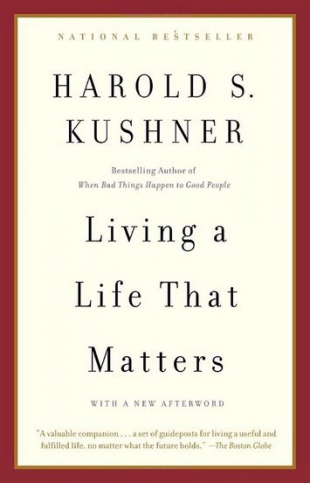"I believe in turning tragedy into the foundation stone of something good and life-enhancing. I have worked hard to do that myself," writes Rabbi Harold S. Kushner, who in 1981 wrote When Bad Things Happen to Good People. In that bestseller, he shows us a spiritual way to respond to personal tragedy. This soul-stretching book is filled with wisdom and healing insights into ways we can handle public tragedies. It is an especially valuable resource to have available after the September 11 national tragedy. Here you will find thought-provoking quotations, relevant stories from religious scriptures, and illustrative material from feature films such as Witness, A Simple Plan, Shane, and others.
"Like many people, I live in two worlds," writes Kushner. "Much of the time, I live in the world of work and commerce . . . that honors people for being attractive and productive. . . . As a religiously committed person, I live in a world of faith, the world of the spirit. Its heroes are models of compassion rather than competition. In that world, you win through sacrifice and self-restraint. You win by helping your neighbor and sharing with him rather than finding his weakness and defeating him." The author believes that Jacob offers us a compelling model of the struggle we all are undergoing at the present moment — to rise above our bad impulses and to follow our conscience.
In the most poignant and timely chapter in the book, Kushner explores the idea of "revenge as punishment in the name of justice." With unswerving clarity, he helps us see that these powerful feelings can be set aside once we realize the following: "When we thirst for revenge, it isn't really revenge we are after. We are looking to reclaim the sense of power and dignity that was stolen from us."
Kushner challenges us to be open to God's grace and to the process of fortifying our integrity. He defines the term as "being whole, unbroken, undivided. It describes a person who has united the different parts of his or her personality so there is no longer a split in the soul."
He uses a category from the Academy Awards to describe how many of us contribute to our communities. Each of us can be "a supporting actor in other people's movies, not being in the spotlight but doing things that shape and drive the plot." He continues: "Like Dickens's David Copperfield, we may yearn to be the star of the movie of our lives, but most of us will never attain that billing. Others will be at the center of the action, and we will be there in a supporting role, making important things happen in the process."
In the other chapters, Kushner suggests ways we can live a life that matters — by believing that we have the ability to do great things, by activating our conscience, by wrestling with our demons, by being morally sensitive, by not giving in to the temptation of getting even, and by being shalom in the midst of a troubled world.
Back to reading a full review of this book.
